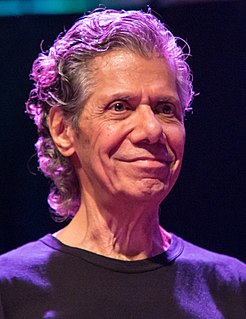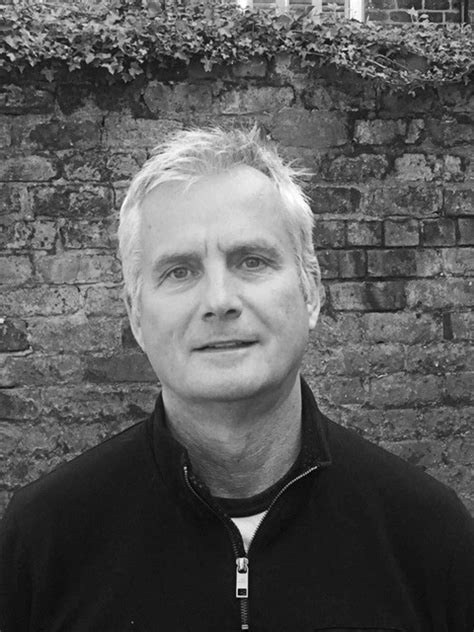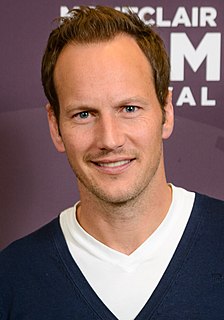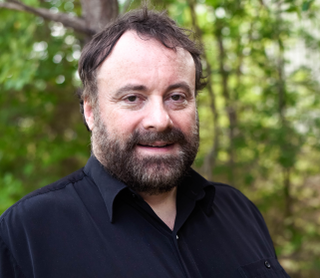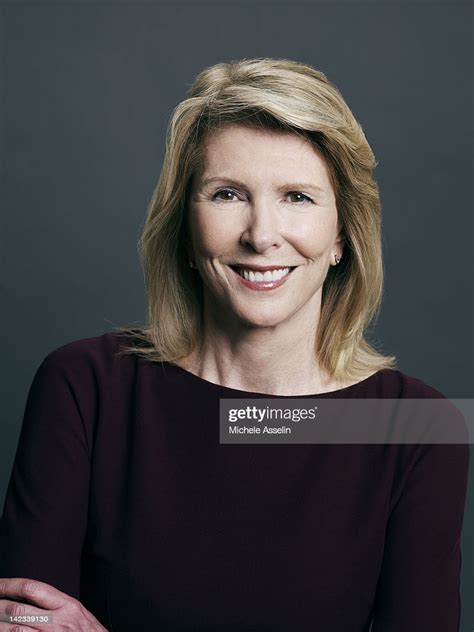Top 986 Boston Celtics Quotes & Sayings - Page 17
Explore popular Boston Celtics quotes.
Last updated on April 22, 2025.
One of the things that did intrigue me about when I read the pilot - because I had not read the books before doing the show - was the mystery aspect of it. I didn't feel that it was just a crime-based story. It really does have that mystery element, and it felt like a throwback to other shows in the past that had a bit more of that. There was something iconic about it. The fact that it's set in Boston gave it a feeling that was different to me. So, I am definitely more of a fan of mysteries than I am of a circular crime-based genre.
For Democrats who are feeling completely discouraged, I've been trying to remind them, everybody remembers my Boston speech in 2004. They may not remember me showing up here in 2005 when John Kerry had lost a close election, Tom Daschle, the leader of the Senate, had been beaten in an upset. Ken Salazar and I were the only two Democrats that won nationally. Republicans controlled the Senate and the House, and two years later, Democrats were winning back Congress, and four years later I was President of the United States.
Let's face it: I'm scared, scared and frozen. First, I guess, I'm afraid for myself ... the old primitive urge for survival. It's getting so I live every moment with terrible intensity. Last night, driving back from Boston, I lay back in the car and let the colored lights come at me, the music from the radio, the reflection of the guy driving. It all flowed over me with a screaming ache of pain ... remember, remember, this is now, and now, and now. Live it, feel it, cling to it. I want to become acutely aware of all I've taken for granted. When you feel that this may be the good-bye, the last time, it hits you harder.
I never know what my next move will be in Hollywood. It's such an unpredictable town. People get jaded and lost and I've been able to stay a float. I think the next logical step in my career would be to start my own filmmaking empire like (Harvey Weinstein) and (Bob Weinstein) did so many years ago. I think if only the unions weren't so strict in Boston, I'd set up shop there and make films of a certain quality you don't see represented these days. I'm full of ideas and dreams.
An alloy of innocence and arrogance, young (Ted) Williams came to Boston when it had four morning and four evening local newspapers engaged in perpetual circulation wars. He became grist for their mills, and his wars with the sportswriters brought out the worst in him, and cost him. He won two Most Valuable Player Awards and finished second four times. Several of those times he would have won had he not had such poisonous relations with the voting press.
I love it here in Boston and I love studying medicine. But it’s not home. Dublin is home. Being back with you felt like home. I miss my best friend. I’ve met some great guys here, but I didn’t grow up with any of them playing cops and robbers in my back garden. I don’t feel like they are real friends. I haven’t kicked them in the shins, stayed up all night on Santa watch with them, hung from trees pretending to be monkeys, played hotel, or laughed my heart out as their stomachs were pumped. It’s kind of hard to beat that.
My dad was all about music. He was a musician, leading a band when I was born. His band was active all through the 40s. He'd started it in the late 20s and 30s. According to the scrapbook, his band was doing quite well around the Boston area. During the Depression they were on radio. It was a jazz-oriented band. He was a trumpet player, and he wrote and arranged for the band. He taught me how to play the piano and read music, and taught me what he knew of standard tunes and so forth. It was a fantastic way to come up in music.
The New York Times columnist, Thomas Friedman, cited Haqqani to make the argument that Guantánamo must be shut down. He wrote:“Husain Haqqani, a thoughtful Pakistani scholar now teaching at Boston University, remarked to me: 'When people like myself say American values must be emulated and America is a bastion of freedom, we get Guantánamo Bay thrown in our faces. When we talk about the America of Jefferson and Hamilton, people back home say to us: 'That is not the America we are dealing with. We are dealing with the America of imprisonment without trial.'
Americans are wonderfully courteous to strangers, yet indiscriminately shoot kids in schools. They believe they are masters of the world, yet know nothing about what goes on outside their shores. They are people who believe the world stretches from California to Boston and everything outside is the bit they have to bomb to keep the price of oil down. Only one in five Americans hold a passport and the only foreign stories that make their news are floods, famine, and wars, because it makes them feel good to be an American. Feeling good to be American is what they live for.
The Affordable Care Act is a huge problem. [Repealing the ACA is] going to have huge implications. We have millennials that live in Boston that are on their parents' health insurance. The businesses have hired them and have been able to hire more people because they have been able to be on their own health insurance. We have seniors in our city who have preexisting conditions, or something called a "donut hole," which is a prescription drug [gap] in Medicare. Whatever changes they make could have detrimental effects on people's health care, but also on the economy.
Home. Home was BAMA, the Sprawl, the Boston-Atlanta Metropolitan Axis. Program a map to display frequency of data exchange, every thousand megabytes a single pixel on a very large screen. Manhattan and Atlanta burn solid white. Then they start to pulse, the rate of traffic threatening to overload your simulation. Your map is about to go nova. Cool it down. Up your scale. Each pixel a million megabytes. At a hundred million megabytes per second, you begin to make out certain blocks in midtown Manhattan, outlines of hundred-year-old industrial parks ringing the old core of Atlanta.
I always grew up around acting. I did commercials as a kid and all that kind of stuff and my oldest brother did theatre in High School. It's funny, when I was 15 I had a friend of mine who dragged me away to a camp at Boston University. It was the first time truthfully that acting didn't feel presentational; it felt very personal. I didn't just feel like I was singing and dancing for my friends in High School. It felt like I was doing a scene and all of a sudden I started to feeling something - I started to feel emotional.
By analyzing data from Greenwich Observatory in the period 1836-1953, John A. Eddy [Harvard-Smithsonian Center for Astrophysics and High Altitude Observatory in Boulder] and Aram A. Boornazian [mathematician with S. Ross and Co. in Boston] have found evidence that the sun has been contracting about 0.1% per century during that time, corresponding to a shrinkage rate of about 5 feet per hour. And digging deep into historical records, Eddy has found 400-year-old eclipse observations that are consistent with such a shrinkage.
When Emily Dickinson's poems were published in the 1890s, they were a best-seller; the first book of her poems went through eleven editions of a print run of about 400. So the first print run out of Boston for a first book of poems was 400 for a country that had fifty million people in it. Now a first print run for a first book is maybe 2,000? So that's a five-time increase in the expectation of readership. Probably the audience is almost exactly the same size as it was in 1900, if you just took that one example.
I was writing - at least beginning to write Boston Boy and there were a lot of holes in my so-called research. I didn't know the towns my mother and father came from in Russia. I didn't know the name of the clothing store I went to work for when I was 11 years old. I didn't know a lot of things. So I called for my FBI files, not expecting to have that stuff there, but I wanted to know what they had on me.But they did have the towns my mother and father lived in in Russia. They had the grocery store I worked in when I was 11 years old.
I enjoyed [playing lawyer in From The Hip] as an ode to my dad. My dad went to Harvard and Harvard Law School, so he had some friends that practiced in Boston. So, there was a big law firm that he hooked me up with the senior partner, then the senior partner hooked me up with a young lawyer who worked in the firm. And the young lawyer was married to a public defender. So I would hang out with them, and I could see both sides of it, those that are corporate attorneys and those that help the poor and the disenfranchised.
A man builds a house in England with the expectation of living in it and leaving it to his children; while we shed our houses in America as easily as a snail does his shell. We live a while in Boston, and then a while in New York, and then, perhaps, turn up at Cincinnati. Scarcely any body with us is living where they expect to live and die. The man that dies in the house he was born in is a wonder. There is something pleasant in the permanence and repose of the English family estate, which we, in America, know very little of.
I think oldest children have a different mentality or know that there were different expectations of them, and I was not only the oldest child - I was the oldest grandchild of 18 grandchildren. I definitely grew up feeling like there were a lot of people who expected me to do something. But it was a very conservative family, very conservative neighborhood. I'm talking mid- to late '60s when I was growing up there, and so if I had stayed in the Boston area, I think my life would have been radically different.
Thirty years ago, my sister, Gale (so named because a gale hit Boston Harbor the night she was born), some friends and I stole a boat in the middle of the night and sailed it out of the Santa Barbara harbor. Suddenly we were becalmed and the current began pushing us toward the breakwall. With no running lights and no power, we were dead in the water. Out of that darkness a steel hull appeared: it was the local Coast Guard cutter. My father, stern-faced and displeased, stood in the bow.
I know this year hasn't gone as we'd all like it. But please, please, everyone do not forget about that 2013 season - the worst to first, the tragedy of the Boston Marathon, everyone rallying around the city, the finish line, the duck boats, everything, celebrating at home. Might be down a little bit in the win/loss column right now, but do not let that erase any of those memories from last year that I get to wear a ring on my finger for. I'm proud to be a Red Sox for those times.
In America, we happen to be living in a third world country from the point of view of economic and social development. I came back from New York yesterday and I took the fastest train in the country, the Acela. My wife and I took the New York-Boston train sixty years ago - it wasn't called the Acela then - and I think it's improved by about fifteen minutes since then. Any other country in the world would be about half the time. In fact when it's riding along the Connecticut turnpike it's barely keeping up with traffic, which is just scandalous.
(On upcoming racing plans) Right now I am going to go back into training and then I am going to resurface and do the BAA Mile, The Boston Mile, and then I am going to do the USA Championships Mile out in Des Moines, Iowa. Then it is either going to be between The Penn or Drake Relays and then I will go back into training again and start another kind of session.
Education is the lifeline of the city of Boston in a lot of ways, as far as preparing and educating young people for the future. So when we think about that - I would love to have the $25 million dollar investment we made up to close the gap on charter schools. I'd love to make that investment in a different part of the school system if we could. The money that we're trying to adjust on transportation, I would love to, if we can save money in transportation - that's not going to be a savings, that's going to come into the general fund, that's going to be reinvested in the school.
Paris is a beautiful city to walk around in. And, you know, all the obvious things: I like the museums, I like the theater, I like the dance. And it's manageable. The food's good. I know a lot of interesting people here. I lived in Boston for 50 years or more. Wherever I am, I'm usually holed up most of the time in the editing room, and so, when I leave the editing room, even if I just take a walk, it's gorgeous. And I walk everywhere. I'm a victim of the seduction of Paris.
I started as an artist and I had a side job moving some heavy boxes for a publishing company. They had just gotten a Mac for their art department, the department that creates the book covers. I was kind of showing the art director a thing or two about how to use a Mac. And one day everyone went out to lunch and I jumped on the computer and designed a book jacket and slipped it in the pile to go to the review board in New York. They picked my jacket and when the art director got back to Boston, he wanted to know who designed it and I said, "Me." He was like, "The box guy?"
When we look at the full-on mass surveillance watching everyone in the country, in the United States, it doesn't work. It didn't stop the attacks in Boston. The marathon bombings. Where again, we knew who these individuals were. It didn't stop the Underwear Bomber, whose father walked into an embassy and warned us about this individual before he walked onto an airplane. And it's not going to stop the next attacks either. Because again, they're not public safety programmes. They're spying programmes. They are valuable for spying.






